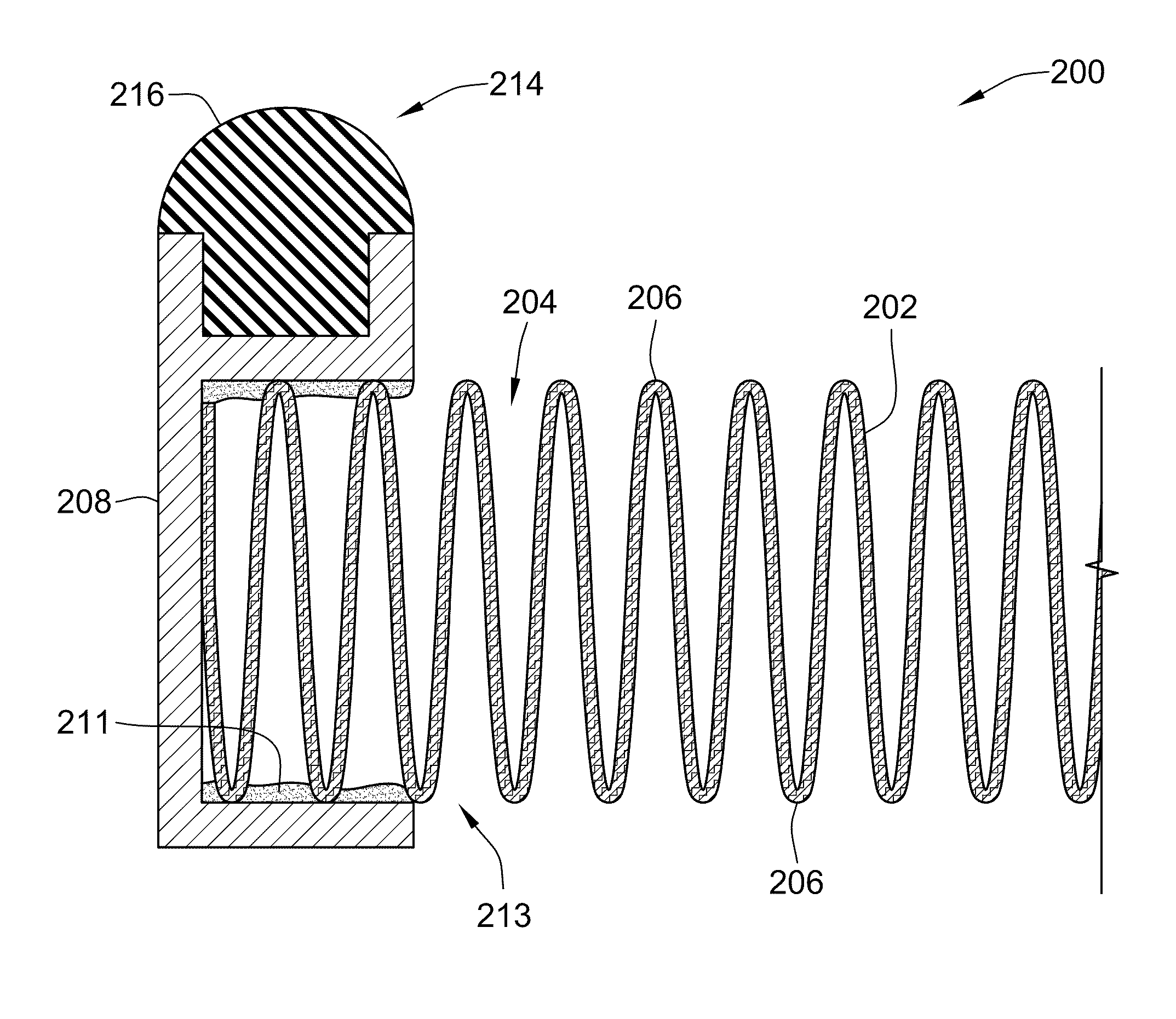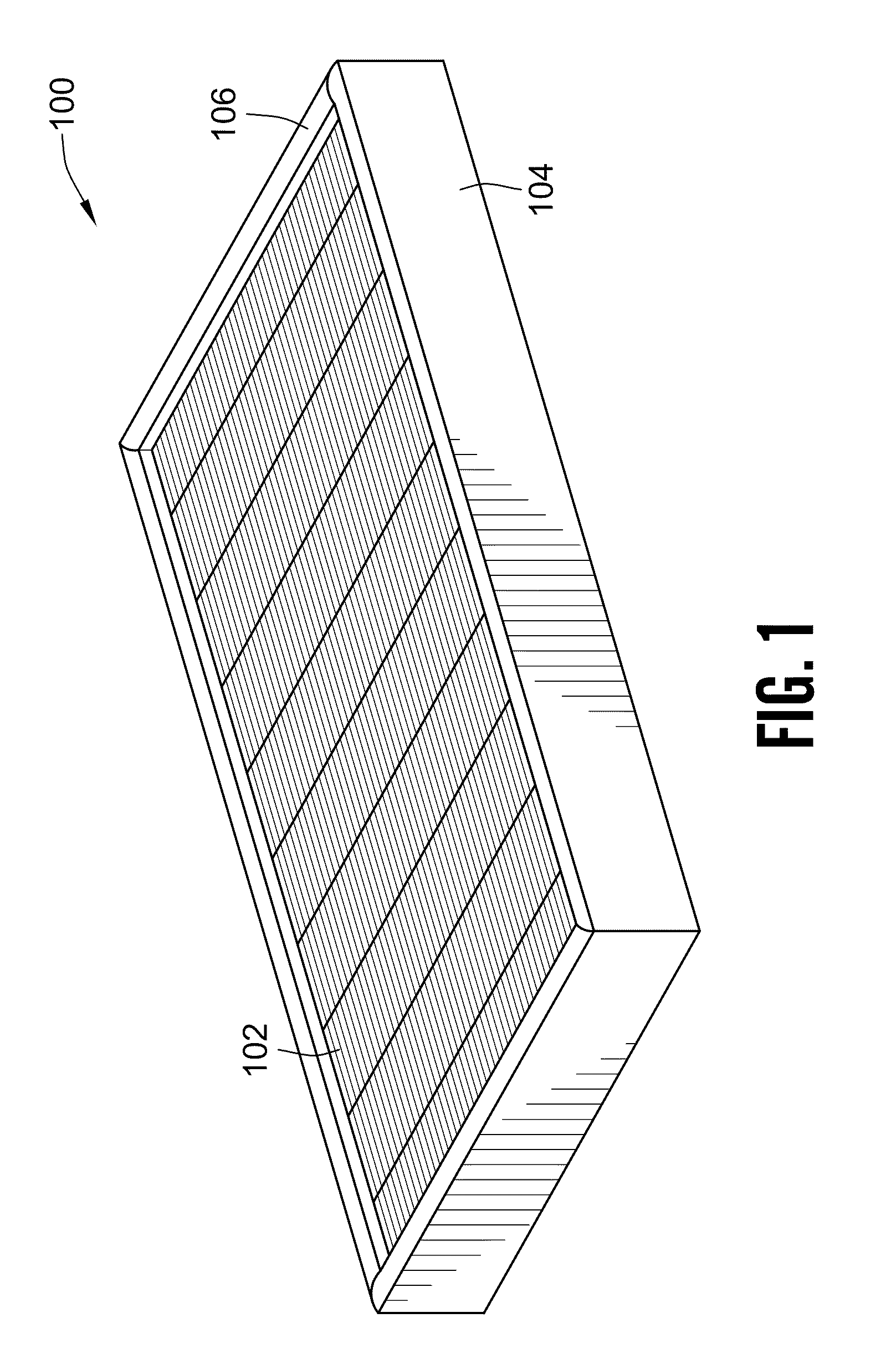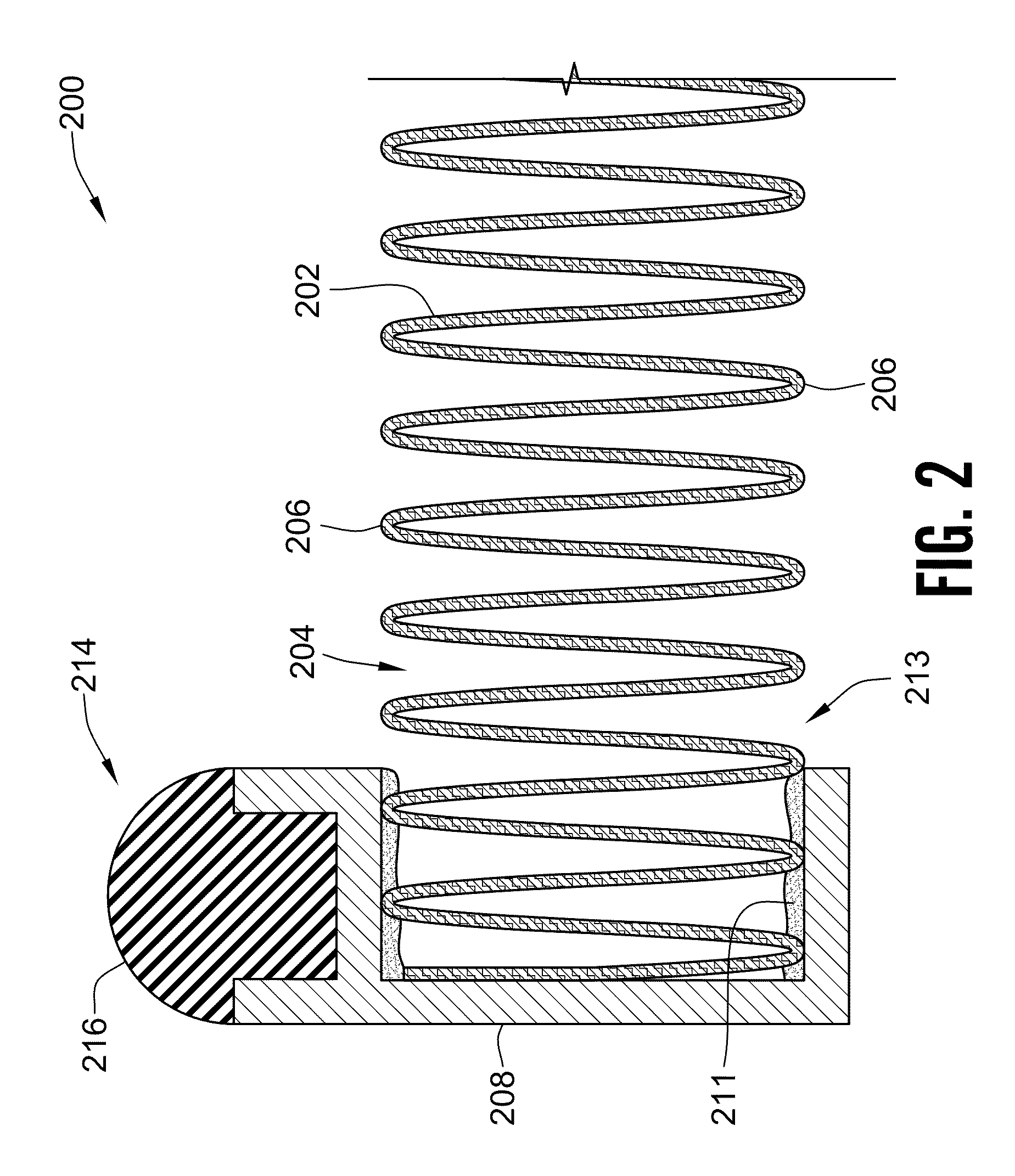Membrane-free filter and/or integral framing for filter
a filter and membrane technology, applied in the field of air filter systems, can solve the problems of difficult to prevent the passage of moisture, significant amount of heat may be generated in the housing, and overly restrictive filters, etc., to achieve the effect of preventing fouling
- Summary
- Abstract
- Description
- Claims
- Application Information
AI Technical Summary
Benefits of technology
Problems solved by technology
Method used
Image
Examples
example 1
[0076]A MERV 14 rated filter was Salt Fog tested. The filter media, made by Kimberly-Clark had the following characteristics: KC984L is a gradient density, bi-component, three-layer media made of polypropylene. The basis weight of KC984L is from 3.25 to 3.40 ounces per square yard; the air permeability is from 59 to 87 cfm per square foot. The target efficiency is 80%, while the minimum roll average efficiency is 69% determined using TSI Model 8130 automated filter tester with 0.3 micron salt particles at 85 liters per minute. The target MD Gurley stiffness is 340 mg, while the minimum roll average stiffness is 280 mg.
[0077]After subjecting the MERV 14 media to two days of intensified Salt Fog testing (the shortened 5 day test), moisture broke through the filter media, and thus it did not pass that Salt Fog test. SEM images suggest that the fibers of the filter media had been stretched and / or deformed in some respect or broken. The spaces between the fibers seemed to have been widen...
example 2
[0078]A tighter efficiency layer was then sought and selected to be laminated to an upstream surface selected substrate. The selected substrate was made by Kimberly-Clark, under the trade designation Intrepid 684L HVAC Filtration Media, with the following reported properties and characteristics:
[0079]Polypropylene / Polyethylene
[0080]Basis weight: 3.10-3.40 oz. / sq. yd.
[0081]Frazier air permeability: 318 cfm / ft.2 (min. 303 cfm / ft.2 roll avg.)
[0082]Target Efficiency: 48% (min. 42% roll avg.)—determined using TSI Model 8130 using 0.1 micron count median diameter NaCl particles at 85 lpm.
[0083]MD Gurley Stiffness: 325 mg (min. 265 mg roll avg.)
[0084]A tighter meltblown polypropylene material with two layers was made and laminated to what would become the upstream surface substrate by Transweb, LLC, located in Vineland, N.J. SEM images of the media are shown in FIGS. 6 and 7. The composite filter media was made by Transweb, LLC, was designated by Transweb LLC with the trade designation T-L...
example 3
[0099]The same composite media as discussed in Example 2 was reversed, with the substrate carrier media located upstream of the two layers of tighter polypropylene melt blown fibers. A filter made with this sample was subjected to a water fill test as described below. The filter passed the water fill test without water passing through over the designated time. Based on this, subsequent testing was performed including the 30-day salt fog test and the intensified five day salt fog test. Like example 2, in example 3, the filter media was constructed into a rectangular panel filter frame and then Salt Fog tested. The filter passed the standard 30-day salt fog test and an intensified five day salt fog test.
Testing Methodologies
[0100]For the examples and discussion above some attention will be given to test methodologies that can be useful for evaluating depth-loading media and substrate media parameters. Efficiencies as set forth herein that can be measured using fractional efficiency te...
PUM
| Property | Measurement | Unit |
|---|---|---|
| mean flow pore diameter | aaaaa | aaaaa |
| mean flow pore pressure | aaaaa | aaaaa |
| pressure | aaaaa | aaaaa |
Abstract
Description
Claims
Application Information
 Login to View More
Login to View More - R&D
- Intellectual Property
- Life Sciences
- Materials
- Tech Scout
- Unparalleled Data Quality
- Higher Quality Content
- 60% Fewer Hallucinations
Browse by: Latest US Patents, China's latest patents, Technical Efficacy Thesaurus, Application Domain, Technology Topic, Popular Technical Reports.
© 2025 PatSnap. All rights reserved.Legal|Privacy policy|Modern Slavery Act Transparency Statement|Sitemap|About US| Contact US: help@patsnap.com



